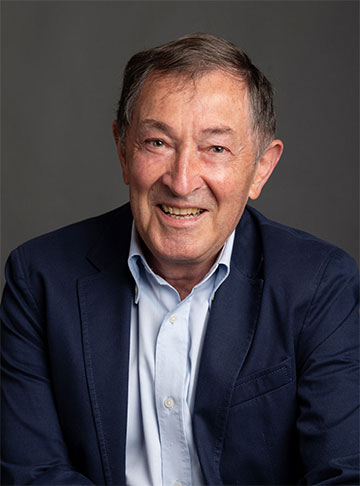
Marcel Poulain
In this installment of senior member insights, OPN talks with Marcel Poulain, emeritus professor at Rennes University, France, and president of Le Verre Fluoré. Poulain became an assistant professor at Rennes University in 1966 and taught solid state chemistry and material science. He later defended his doctoral thesis in 1972. Poulain conducted research with his brother Michel that focused on complex fluorozirconates and spectroscopic characterization.
Poulain’s career was marked by the serendipitous discovery of the first heavy metal fluoride glasses in 1974. He co-founded the company Le Verre Fluoré with G. Mazé in 1977 and pursued fundamental research with his team. A huge number of glass-forming systems were investigated, while a strong interest in fluoride glass fibers emerged in major research centers and telecommunications groups. At Rennes University, Poulain supervised around 50 doctoral theses, most of them relating to new glass-forming systems—fluorides, halides, heavy metal oxides and chalcogenides. Other fields of his research encompass mechanical properties and the aging of silica fibers.
The first applications of fibers from Le Verre Fluoré included the Avriris project (1986) at NASA and the Astronomy Flour project (1991), which led to the first coupling of telescopes in the K-band. Other applications and projects, such as Gravity, followed.
What first interested you in pursuing science?
I was passionate about science and especially chemistry. After literary studies, I entered the Faculty of Sciences. I thought that science could transform the world.
What aspect of your current work do you find the most interesting or exciting?
I am living a fascinating adventure that appears as the realization of a dream. It has been a long way, starting with the serendipitous discovery of the heavy metal fluoride glasses and leading to a number of pioneering achievements and a very broad range of applications. At this time, we do not see the limits, and unexpected fields of interest are emerging regularly. Fluoride glass fibers have been used by more than 300 companies and 100 universities or research centers all over the world.
What tips for successful networking do you have for early-career professionals?
Follow your way, nurture self confidence and positive dreaming. Accept yourself and people as they are. Do not create irreversible situations. Open your eyes and spend enough time thinking by yourself. Do not rely too much on work, even though you will sometimes have to work very hard. Be aware that the present state of science is not perfect. When experimentation and theory disagree, rely on observation.
What professional resources do you rely on to stay active and engaged with your field?
I welcome solicitations from scientists, former students and customers. These exchanges are stimulating. Scientific congresses and technical exhibitions are good places for that. Another method is keeping in mind unanswered questions: at some time, solutions or nice ideas may emerge.
What’s the best career decision you’ve ever made, and why?
The creation of the company Le Verre Fluoré in 1977 appeared as a crazy move. At that time, it was unusual to start a company based on an academic discovery. By the way, Le Verre Fluoré is one of the oldest photonic companies in France.
While my colleagues in the company were developing applications and investigating markets, I stayed at my university, pursuing research and supervising theses. In this way, I was involved in both applied and fundamental research.
Describe a major turning point in your career. Was there a specific action/accomplishment that got you there?
The discovery of the first heavy-metal fluoride glasses was the starting point of a wonderful adventure. It was the unexpected result of an attempt to synthesize new crystalline compounds. According to glass specialists, the existence of this new material raised a number of questions, namely about structure and glass-formation mechanisms.
A few years later, fluoride glasses attracted a very large interest in the scientific community because they have the potential for ultralow optical losses. I joined the glass community and learned a lot from them. Then, I took part in various scientific societies and participated in numerous congresses and symposia.
What is one piece of advice that you wish you were given as a student/early in your career?
It would have been useful if someone had told me, “Go ahead with confidence and help your colleagues and competitors to be successful.” Do not be afraid of contrary winds—they help a good skipper to move faster. It took time before I understood that.
How important are leadership roles in career development, and how do you hone your leadership skills?
A good leader aims to make the team autonomous and self confident. This way, you will attract talented people and help beginners express their potential. You also have to learn from your mistakes.
At this point in your career, what are you most looking forward to next?
I am trying to accompany the company’s growth in the following directions: innovative management, huge efficiency with a minimum amount of work, ethical values and fun and pleasure.
If you weren’t in the sciences, what would be your dream career?
I could have been a writer. Literary creativity is close to scientific creativity. Playing with words is like mixing chemicals to provoke a reaction. In this way, it may be dangerous—chemical explosion or media turbulence. In both cases, it may be deadly.
